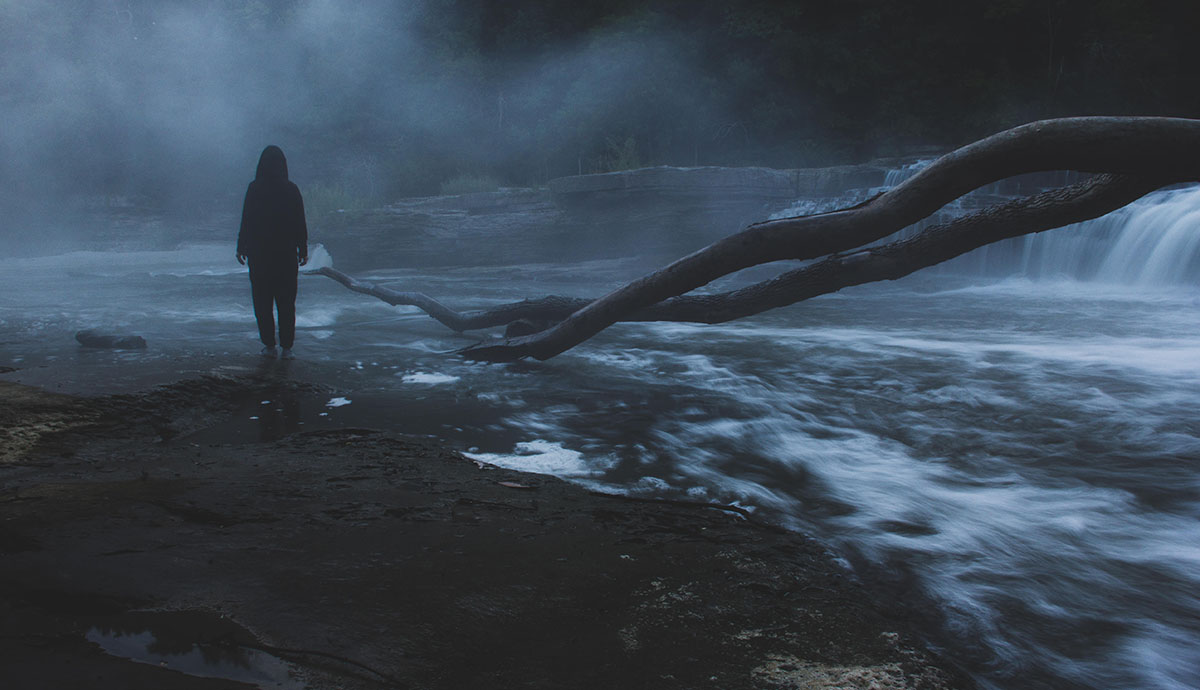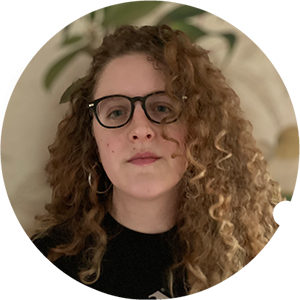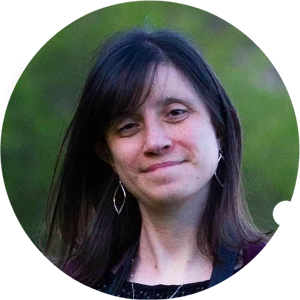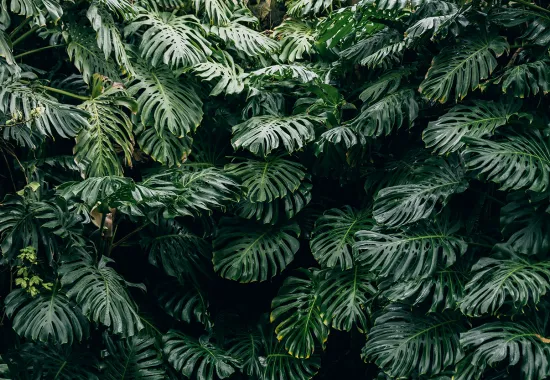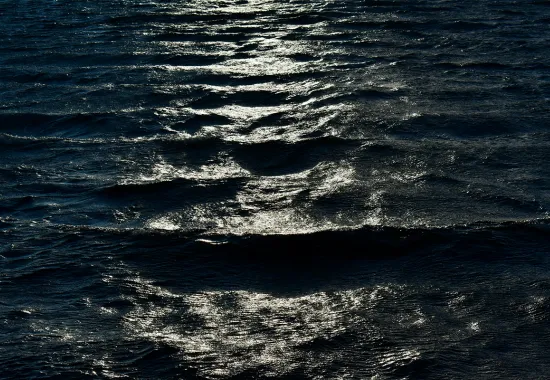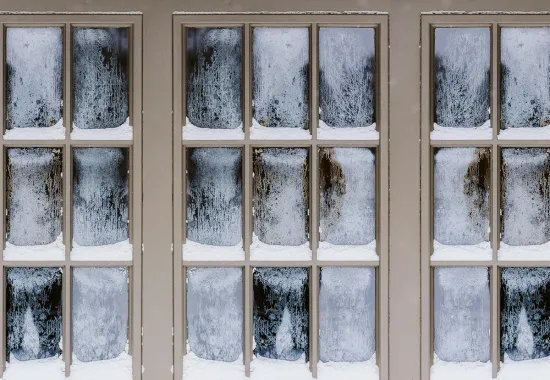Leviathan
A month after submitting her dissertation, she walked into the sea.
She had considered putting rocks in her pockets—for dramatic effect and for more practical reasons—but she kept picturing them weighing her pants down and then pulling them off, and then her body floating up to the surface, naked below the waist. Instead, she bought a weight belt online, the kind scuba divers use to keep them suspended in the deep. She tried it on in the bathroom mirror. She was worried it would make her look stupid, but it didn’t. She looked prepared.
It wasn’t that her research was bad. It was good, probably. She had worked hard nearly every day for almost half of her adult life to make it good. Not just good, but important. That’s why she chose the lab she did, she told herself (and other people as well): to make the world—in her own small way—a better place.
And then a couple of postdocs at Northwestern published a study five days before her defense was scheduled. Their findings rendered her work superfluous. She would still complete the process, of course. It would still most likely secure her a degree. But beyond that, it was meaningless.
“Be happy,” her father said. “It’s all the same outcome in the end. The work is out there and it doesn’t matter whose name is on it. You can move on to something else now.”
She tried to be happy. It didn’t work. She tried moving on to something else. That didn’t work either. When she closed her eyes and thought hard about what was important to her, all she could see were black flecks of carbon tumbling slowly through saltwater.
“Your research isn’t your life,” her sister said. “Why don’t you spend some time with the people you care about? Do some of the things you’ve been neglecting for the past four years?”
She went to lunch with her sister. They ate a salad and some fries. Her sister told her about a movie she had seen with her boyfriend. The next day, she went to the movie theater and watched it. It wasn’t very good. She wondered how much money it cost to make and how much time the director spent working on it and if he was happy with the result.
She got cocktails with friends from undergrad. They said things like “we’ve missed you!” and “where’ve you been hiding?” She drank too much and said something stupid. It didn’t seem like anyone else noticed, but it kept her up for hours that night, her stomach churning with humiliation and regret. She went on a run. And then another run. She turned her ankle. She tried swimming instead.
After her defense, a few people from her cohort reached out to congratulate her. She ignored their texts.
“That’s okay,” her therapist said. “You can get back to them when you’re ready to talk about it.”
She blocked their numbers.
“My life has no meaning anymore,” she told her therapist.
At this point, the weight belt was already hanging in the back of her closet.
“Nobody’s life has meaning,” her therapist replied. “Meaning is what you make of life.”
She decided to do it in the evening, around dinnertime, when there would be less of a possibility of someone seeing and trying to intervene. It was still early spring, but the beaches were already drawing small, overeager crowds in the afternoons. She parked a few blocks away and walked, leaving her keys in the glove compartment.
She had considered writing a note but decided against it. What would she write in it? And to whom? Too many options presented themselves to her and none stood out as any better than another.
It was a lovely, unseasonably warm evening. Though the sun still shone at the edge of the water, the moon had begun to pull itself out in relief from the low-burning orange of the sky. It seemed to be watching her. She winked at it, seized by an unexpected good mood.
“A beautiful night to drown, isn’t it?” she joked.
Nobody laughed.
Despite the pleasant atmosphere, she walked into the surf without pausing to take in her surroundings. She didn’t even pause to take off her shoes. She thought about it, but it seemed so cliché.
As she walked, the water rose on her body until it reached her waist and then stopped rising. The sand leveled out. She continued walking out towards the horizon. Damp crawled up through the fabric of the weight belt and into her shirt, making her shiver.
Eventually, after more walking than she had planned for, the drop of a shelf appeared in the sand in front of her. A seemingly endless stretch of yellowish gray before her feet and then, suddenly, black.
She breathed a sigh of relief and stepped off.
The gradual sinking, facilitated by the weight belt, was the most incredible sensation, like stepping out of one world and slowly descending into another. She opened her eyes. All around her was shining blue-gray light rolling over itself in waves. Though her own lungs were useless, the water seemed to breathe around her. Each pulse nudged her deeper. She could still see the gleam of the moon shimmering down at her from the surface. Now, it winked back at her.
The light around her dimmed as she sank until all she could perceive was the contrast between the shadow of the shelf and the brighter shadow of the open water. Then, gradually but suddenly too, she caught a glimpse of movement in the watery dark. A shape, some distance away, that she had originally taken to be part of the shelf, seemed to detach itself and begin drifting towards her. Or swimming towards her, perhaps. She couldn’t tell. Through her salt-smeared vision, all she could see was a large, dark shadow becoming larger, and darker, and then larger still, until it loomed in front of her, nearly close enough to touch. But not just in front of her, above her too, and below her, the bottom of it bleeding into the failing light of the deepest water, the whole thing so impossibly, unbearably massive that her mind reeled away from it, searching instead for something, some detail, it could hold on to.
There were none to be found. It was only dark and still and vast.
She closed her eyes and told herself that it didn’t matter. Her body was running out of oxygen. She would be dead soon anyway. But this only made the terror worse. Before, death unfurled around her in the water like an opening. Now, it pursued.
She opened her eyes. At the sight of it hanging there, unmoving, her body shook.
Almost as if in response, the thing began to shimmer, creating a piercing vibration through the water that rose and fell simultaneously. Like what a whale song might sound like if it didn’t make any noise at all.
And then, suddenly: pleasure.
Bubbling up from between her thighs and pushing into her, filling her up, sparking every nerve in her body to ache and sing and ripple with sensation like light playing across the ocean floor. Deeper and deeper it curled and coursed, bringing to life sensitive inside places she hadn’t known existed, swelling and bursting again and again until her body seemed to dissolve into the water and spread out to touch every delicious feeling that existed in the world.
When she cried out, the saltwater rushed into her mouth, flooding her lungs and stomach, and that too, somehow, was pleasure.
When her body could no longer contain it all, she closed her eyes and let the water take her.
⬤
They found her the next morning, washed up on the shore near the lifeguard station. The weight belt was gone. Her shoes as well.
After she coughed up a stomach full of seawater, they insisted on bringing her to the hospital. There was still a risk. “Dry drowning,” they said. It killed kids all the time apparently.
Once she was finally cleared to leave, she returned home and—without stopping to take a shower or even remove her clothes—passed out cold on top of her bedsheets.
A knock on her door finally roused her after almost a full day of slumber. Her sister.
“What happened? What were you thinking?”
She shrugged.
“Were you trying to…?”
No, no, nothing of the sort, she assured. She made them tea. They sat for a while and talked about her sister’s new job.
On her way out the door, her sister turned back to her, trying to suppress the worried expression that spread across her face.
“Hey, what are you up to tomorrow? If you’re free, we could catch a movie or something.”
She told her sister she was busy. It was a lie but, as she said it, she thought that perhaps she could make it true. When the thought occurred to her, she experienced a funny sensation that took her a moment to recognize as excitement.
The next day, she went to the beach. She lay out on the sand in her swimsuit and didn’t go near the water. Touching it felt too intimate now; she couldn’t bring herself to do it in front of other people. Still, the beach was nice. She read a book and bought some sort of spiked punch that a man was selling out of a plastic bag. It coated her teeth in red syrup. That night, she fell asleep to the sounds of waves crashing through her mind.
She went to the aquarium the day after that and watched the strange creatures there pace through the water. None of them looked like the thing she had seen but she liked to look at them anyway.
Though her research had been related to the ocean, it was confined to sediment and the movement of certain tides. After her encounter, her interests expanded. She began spending her evenings reading about the beings that lived in and around the sea. The plants and animals, of course, but also stories about gods and monsters, saints and beasts. She became interested too in the groups of people around the world who lived near and in the ocean, particularly the Bajau Laut, who could apparently dive underwater for up to thirteen minutes without taking a breath. She didn’t know if she believed this claim, but she liked to imagine what it would feel like to stay under so long without intending to die.
“You seem well,” her sister said the next time she stopped by. Her tone sounded almost resentful.
But it was true; she was well. Or, at least, much better. While she had subsisted mostly on chips and hummus and take-out stretched over days while she was working on her doctorate, her appetite now returned in force. Craving brine, she ventured out to her local seafood market and bought herself two dozen oysters. She ate all twenty-four of them at her kitchen table in a beautiful sort of rapture. As each bivalve slid over her tongue, it reminded her of something that made her squeeze her thighs together hard.
It wasn’t just oysters she craved. It was thick fillets of flounder; whole bass, the eyes burning white in the oven; crabs and lobsters and their smaller cousins, flesh sucked from their shells and slipping down her throat; the firm, clean texture of raw scallop on her tongue; surprisingly sweet cuts of grilled eel; long, sturdy strands of kelp glimmering like jewels. She began to fill out. Just around her face at first, but after a couple weeks, she had trouble fitting into her pants.
“Did you do something different with your hair?” her father said to her when she came to visit, which took her aback. He never noticed things like that. She shook her head.
“Hmmm,” he said. “You have a certain glow about you. How’s the job hunt going, by the way?”
She smiled at him and let his words wash over her like waves.
Later that night, though, while lying in the bath, she thought about what he had said. Was she glowing? She looked down at her stomach, which rose gently from the water like the curve of a sea serpent’s back.
The next day, feeling foolish, she went to a pharmacy two neighborhoods away and purchased three pregnancy tests. The pharmacist winked at her sympathetically. Back in her apartment, she took one. Then another. Then the last.
She placed them in a row on her kitchen counter and looked at them in disbelief. Impossible. She hadn’t in the last year at least and, even before then, rarely ever with people who could get her pregnant.
But of course she knew what it was. She wasn’t stupid.
Going to the doctor wasn’t ever a real consideration. What would she say? What might they see on the ultrasound? Instead, she began to slowly, quietly prepare at home. She started with the simple things—getting rid of alcohol and caffeine, purchasing the correct vitamins. Though she was dimly aware that it was advisable to reduce her seafood intake, she felt that her pregnancy might be the exception to this rule.
After working up the nerve, she finally drove out to a nearby suburb to spend nearly $700 at a store called Wild Mama and then stopped by a pet store as well. Just in case.
Her days were now impossibly, deliciously full. She spent them at the beach and the aquarium, at the store, at the prenatal yoga class she joined, at the computer researching home births and searching for jobs she could do from home. Finding non-academic work was easier than she thought. She decided to pick up some freelance grant writing gigs while she figured out what full-time position might best suit her new lifestyle. Data science maybe. As long as it paid the bills. When this thought first occurred to her, something sticky between her shoulder blades seemed to melt away.
Nights she spent in the bath, reading myths of sea monsters and mermaids and rubbing salts and oils on her rapidly expanding stomach. Her body swelled, though with what, she didn’t yet know. A mystery of flesh. Full of meaning.
“I never see you anymore,” her sister complained.
She smiled magnanimously. “I’ve just been so busy lately. I’ll make time, I promise.”
“So, what’s your next step?” her father asked. “You better find something soon, before you lose your momentum.”
“I have something in the works,” she told him.
“I’m pregnant,” she said to her therapist, whom she started seeing again recently.
“That’s big news,” her therapist said. “How are you feeling about it?”
“It feels important,” she said. “I feel like I’m doing something that matters again.”
“And what about everything else?” her therapist asked. “Are you still struggling with feelings of emptiness?”
“Of course not,” she replied. What a stupid question, she thought.
According to everything she read, the thing inside her was growing at a much faster rate than any normal fetus. She had difficulty getting up the stairs now. Though she wasn’t even three months along, she registered for an online midwifery course and bought supplies for a home birth. She knew it would still be dangerous to do it alone, but what other options did she have available to her? At least she was good at research, at figuring things out on her own.
⬤
One afternoon, while watching 20,000 Leagues Under the Sea, she realized it had been over two weeks since she had been able to visit the ocean. There was just never enough time. But it was important, she thought, to go while she was still able to. Guiltily, she made plans to visit late at night when the beaches would be empty. Just to be safe, she made sure that the filter was working in her newly purchased aquarium and reluctantly called her sister to ask for a ride.
“We can make a fire, maybe roast some hotdogs or something,” she said, adding, “It’ll be fun.”
After some hesitation, her sister agreed.
At 7 p.m. on a Tuesday, right as the sun was beginning to set, she waited on the steps of her building for her sister’s car, grateful that the ocean air at night made it cool enough for her to wear an oversized sweatshirt.
At the beach, they sat together on a picnic blanket away from the waves.
“Do you want to swim?” her sister asked.
She shook her head. She still hadn’t ventured into the water since it happened. The waves made their sounds and she tried hard to pay attention to them. She regretted inviting her sister to come.
“C’mon,” her sister said, rising to her feet and pulling her hand, “let’s get our toes wet at least!”
Not wanting to make a fuss, she allowed herself to be led to the water. The ocean hadn’t changed at all. Not significantly at least, since the last time she was there at night. It was constant—perpetually transforming back into itself. She thought of the creatures in her books and of the monsters too, the unknown world moving below the surface.
If she let herself touch it, she wondered, would she find herself back inside of it, the weight-belt pulling her down and the shadow of the deep all around her? Was that what she wanted? Or what she feared?
She stepped out of her shoes and into the water. Her toes sunk a little into the sand, grounding her. She felt the wake hit rhythmically against her ankles like it was knocking on a door.
And then it happened. The feeling was so immediate, so undeniable, that she knew what it was the moment it hit her body.
She stumbled back onto dry sand.
“I need to go home,” she said.
Her sister began to reply but she cut her off.
“I’m going into labor.”
They didn’t make it to the car. It came fast, bringing her to her knees only yards away from where the waves broke on the shoreline. While her sister asked questions she couldn’t answer, she lowered herself painfully onto all fours, the position she read was best for this sort of thing.
“Why didn’t you tell me?” her sister shrieked. “I don’t know what to do!”
She bit down on the inside of her cheek to keep from screaming. Something inside of her pounded at her pelvic floor, a relentless current against a crumbling dam. She screamed and the sand beneath her fingers vibrated with a soundless response. The waves seemed to hum at the same frequency.
Her sister continued talking at her, continued trying to help, but she could barely perceive it. She was somewhere else, the light and sound around her muted as though through a thick, watery lens. When she could no longer hold herself up, she eased onto her back and from there could see the trickle of liquid that had begun flowing out from between her legs. Her sister shone her phone light on it. Red.
She pushed the way she was supposed to. The pain was indescribable. Between her legs, the trickle turned into a river, so thick and fast that it escaped being absorbed into the sand and flowed into the ocean. It was as if she were giving birth to all the blood in her body. As if, by the end of it, only half of her would remain while the other dissolved into the sea. And which half would she be? Once in the ocean, the salt in the water would rupture every blood cell and then they would undergo births of their own.
But then the blood started to thin. Not in volume, but in color. It became lighter red, then almost pinkish, then clear. As it changed, it began to burn against the ripped flesh it exited from, like nothing more than salt in a wound. It continued, never stopping, the flow only becoming heavier, now spurting from her in violent bursts like an opened fire hydrant. Still, she pushed, desperate to see what her body had created in the past few months, desperate to understand what it was she had accomplished. She screamed and moaned and wailed. Each time she felt something hit against her cervix, she would strain to push it out only for it to be more saltwater.
Her sister, kneeling in front of her, seemed to root around on the ground, looking for something. The child perhaps? None came. Her contractions slowed and so did the stream of water. Her stomach seemed deflated now. The water, which had burrowed a path deep into the sand leading all the way to the surf, stopped completely.
She raised herself to her elbows and looked at the damp, ruined mess of the lower half of her body. Her legs shook with exhaustion.
“I’m so sorry,” came her sister’s voice.
She looked up at her and saw that her sister was crying.
“I’m so, so sorry.”
She raised herself awkwardly up to sitting. The ocean spread in front of her, dark and vast and unknowable.
“Why?” she asked.
Her sister looked at her, her features contorted in a mixture of shock, grief, and confusion.
“I didn’t even know you were…. I’m sorry I didn’t notice. I’m sorry you lost it. I can’t imagine how that must feel.”
She looked down at the skin of her stomach, which lay in a funny little pile on her abdomen. She looked back out into the water, trying to figure out where the water from her own body had gone while knowing that it was impossible to determine. From her position, she thought for a moment that she could see the shadow of the shelf. And perhaps even deeper, into the shadow hiding within the shelf. But no. It was just a thick, dark cloud in the reflected sky. She couldn’t see anything at all. The mystery remained hidden from her.
She started to laugh.
Recommended
The Monstera
The Wild Women of Brigantine
The Salamander


